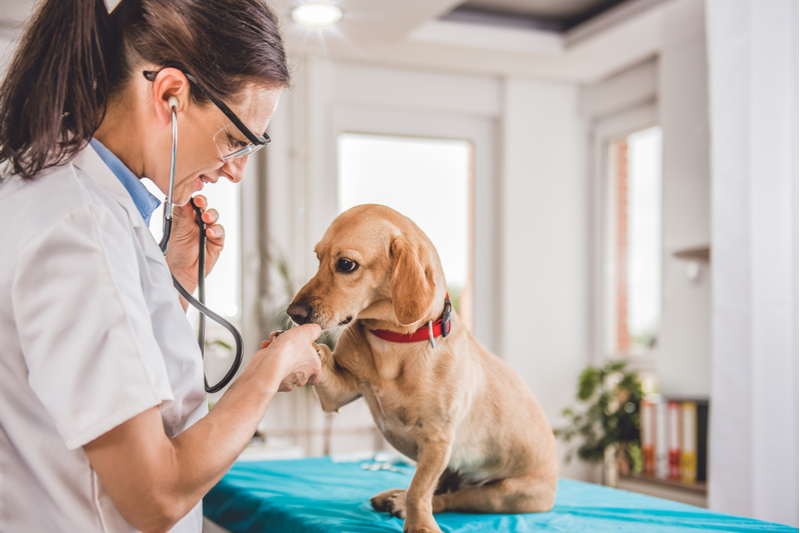Just like in people, prevention is the best way to ensure your pet is in great shape, free of disease or maladies. Prevention is the main reason why frequent exams help keep your pet healthy. Even so, regular pet health exams can do much more than that. If your pet is experiencing an underlying condition that is not yet prevalent, regular exams can help to ensure the issue does not progress any further. Let’s have a look at why veterinary exams are so important to your pet’s health.
What is a Pet Health Exam?
Otherwise known as a pet wellness exam, a pet health exam is a veterinarian led check-up for your pet. These exams are able to prevent and detect all kinds of problems as well as help to provide individualized lifestyle suggestions specific to your pet.
An untrained eye can find it hard to detect the symptoms of an early stage health condition. Even though your pet may not currently appear to be in bad shape, there could be a developing issue just under the surface. This is the main reason for adopting a regularly scheduled wellness exam. When you take appropriate measures to prevent health problems, potentially life-threatening (and costly) conditions can be found and eliminated before they reach a late stage.
What Happens During a Pet Wellness Exam?
Pet wellness exams include a few key characteristics. During an exam you can expect your vet to include a few key points:
Pre-Exam – There may be a few things to address before coming into the office. You may be asked to provide a stool or urine sample or possibly asked to fast your pet before your visit.
The Consultation – When you arrive for your appointment, your vet will begin asking you a few questions. These questions are akin to an intake consultation. Your pet can’t speak English, and so your input is required to gain information on diet, personality, general activity, prior issues, etc.
The Physical Exam – The physical exam is where the vet performs a full physical observation of your pet. This can, and probably will, include blood tests, a rectal exam, and an oral health exam in addition to a general observation of the condition of their coat, eyes, ears, and nose.
What is the Purpose of Blood Tests?
Blood tests are the most effective way for the veterinarian to gain insight into the internal health of your pet. Various markers can help indicate if your pet is in good internal health or not. It can also indicate general markers of health like hydration, oxygenation, and the ability to clot blood if an injury arises. This is done through a process called a Complete Blood Count (CBC) and is a very effective way to see what is happening inside your pet’s body.
What is Urinalysis?
Another potential test that is likely to be performed is a urinalysis. This is used to assess urinary tract health. Testing the overall health of the kidneys and bladder helps determine if any adjustments in your pet’s diet or lifestyle are suggested. This can also help to see if other indicators of health like liver function and glucose regulation are on point as well.
How Often Should A Pet Wellness Exam Happen?
On average, most veterinarians suggest that you schedule a wellness exam at least once per year. This is especially important if you live in an area especially prone to parasites, heartworm, and pests. Your vet will be able to let you know how often to visit and what will be happening during each visit.
Final Thoughts
There are few things that can be more beneficial to your pet’s health than a regularly scheduled pet wellness exam. The reasons why frequent exams keep your pet healthy are many. If you have specific questions related to your pet’s health, reach out to us today. We can make sure to look after your pet without further ado. We are always here to help and are ready to make sure your pet gets the best care possible.


